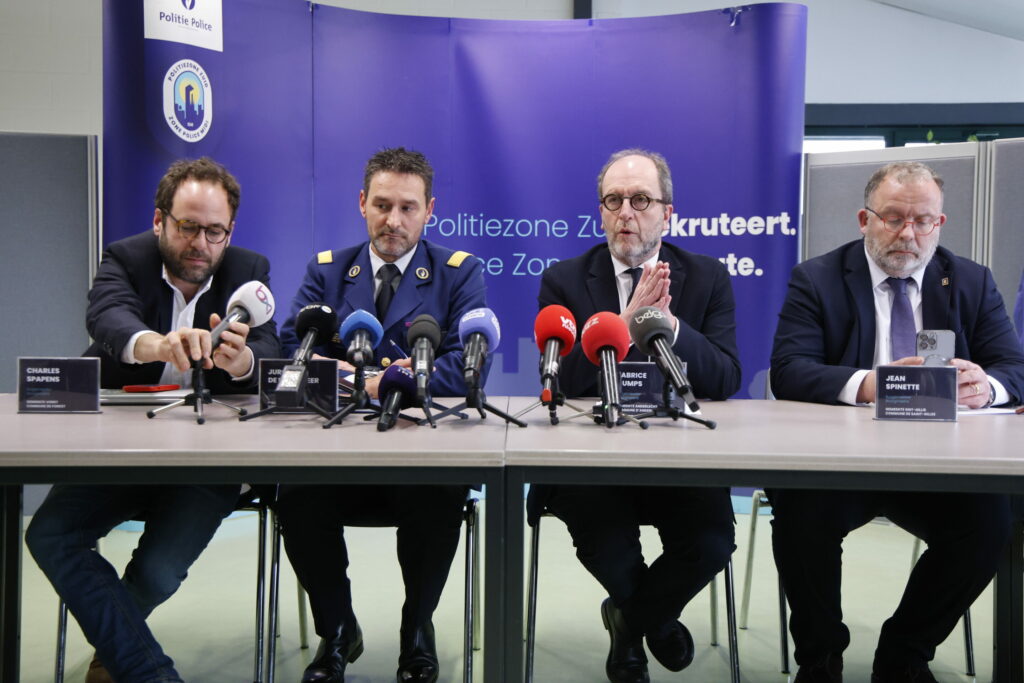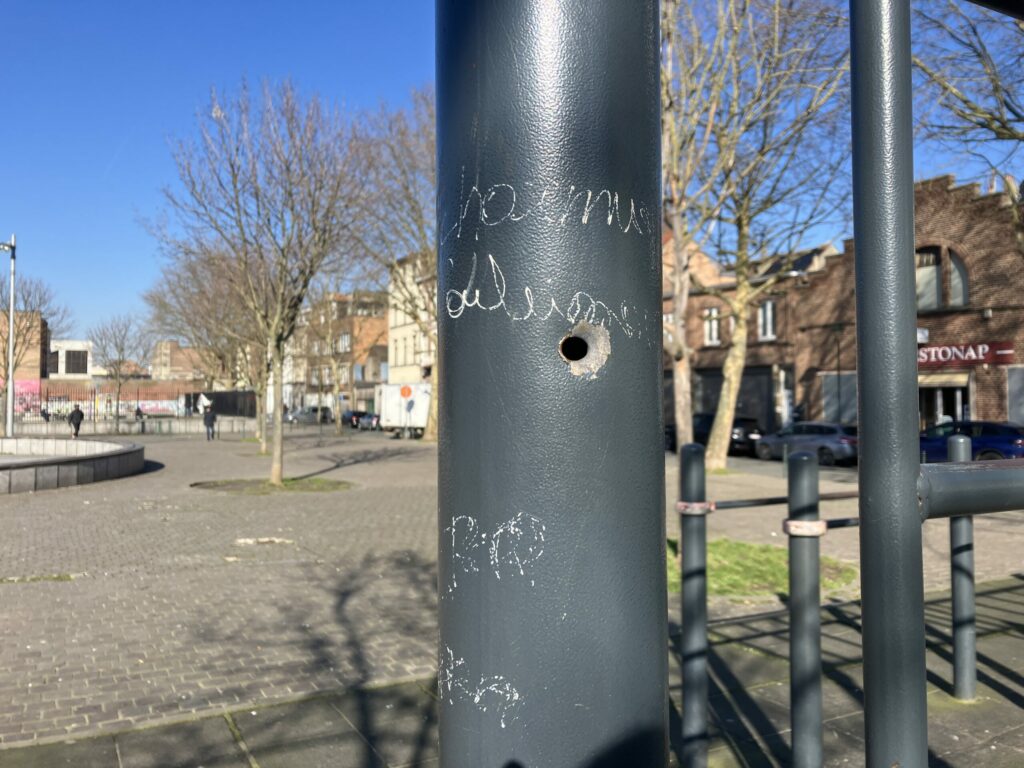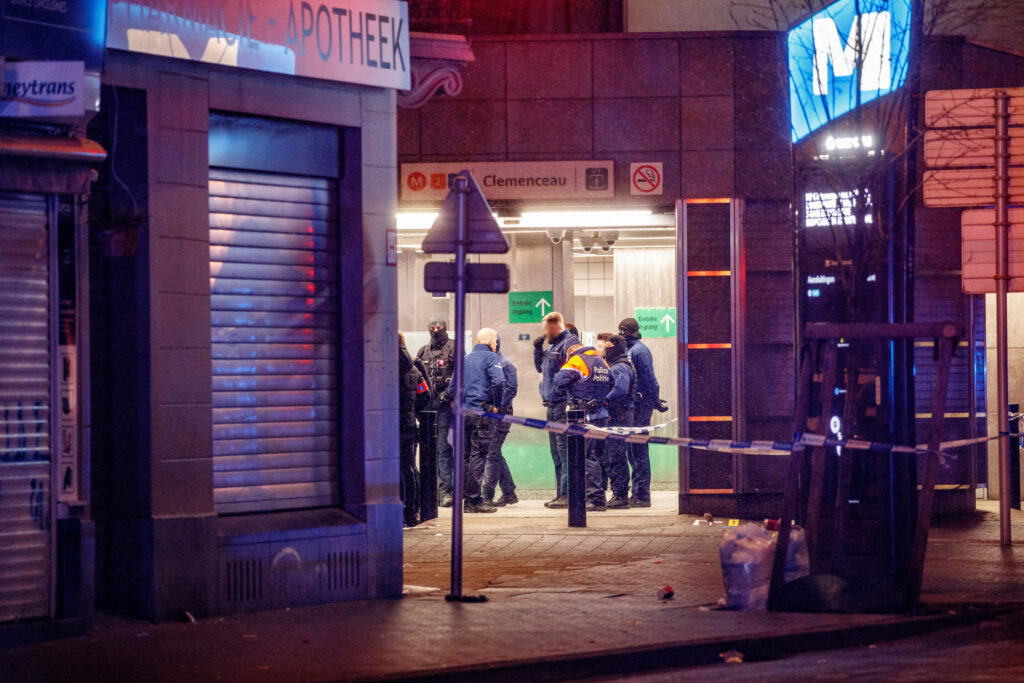In light of the recent spate of drug-related shootings in the Brussels municipality of Anderlecht, the authorities spoke of "a crisis" and once again called for federal reinforcements during a press conference on Thursday afternoon.
The mayors of Anderlecht, Saint-Gilles and Forest, and the chief of the Brussels Midi police zone explained that the territorial battle between drug gangs – in which several people have been killed and injured – was too big a battle for the local police alone.
"When we speak of various shootings, I believe that we can say that this is a crisis," said Anderlecht mayor Fabrice Cumps (PS). "And it is not just one shooting, but six or seven in eight days. This is a crisis because it is a gang war."
You and whose army?
Police chief Jurgen De Landsheer stressed that an investigation is ongoing. The local police are working together with the Federal Judicial Police, under the coordination of the Public Prosecutor's Office. "We have the full support of the public prosecutor in our fight against the street dealers."
However, the local police department's drug section has consisted of only five people in recent weeks, De Landsheer admitted. He did not go into details of the operations but The Brussels Times understands that the police zone's drug unit is dealing with staffing issues, including as a result of sickness. In spite of this, De Landsheer maintained that forces "have the support of our entire police department, which consists of around 70 people."
De Landsheer also spoke of a crisis. "When people are killed, we are in a crisis. I think a human life is still worth an enormous amount to each of us. On the other side, people clearly think differently but that is also the difference between them and us."

From left to right: Forest mayor Charles Spapens, chief of the Brussels Midi police zone Jurgen De Landsheer, Anderlecht mayor Fabrice Cumps and Saint-Gilles mayor Jean Spinette. Credit: Belga/Nicolas Maeterlinck
"At the same time, we are trying to guarantee people's freedom as much as possible. This is a crisis, but we are addressing it," he stressed. "We are taking measures and doing daily evaluations to make sure that they have as little impact as possible on the daily lives of ordinary people."
He said that his police zone would be doing that as long as necessary but hoped that work being done by the judicial forces would mean that the current 24/7 police presence could be phased out. "None of us are asking to make Belgium a police state or to see the army on our streets."
The square at the Clémenceau metro station in Anderlecht – where several of the shootings took place and two men were seen carrying Kalashnikovs – was partially closed with barriers on Thursday, Cumps confirmed. However, the metro station remains accessible via the Rue de la Clinique. Pedestrians must walk around the square as the middle section is inaccessible.
Hit them where it hurts
Cumps repeated that the authorities have to work on two axes. "We have to tackle the street dealers but especially the criminal organisations behind them. That can only be done by hitting them where it hurts, in their wallets."
After all, drug trafficking has evolved in recent years from a "village economy" to a much larger and more complex phenomenon on the global level, he said. Therefore, Saint-Gilles mayor Jean Spinette (PS) requested that the Midi police zone be given access to all the camera surveillance systems that the federal level has, for example in the metro stations.
"The gangs earn tens of thousands of euros every day," said Spinette. "Our new prosecutor [Julien Moinil] is very motivated to tackle them, we hope that his call to the federal level will be heard and that the Federal Judicial Police and the Federal Railway police will finally be reinforced."

A bullet hole in a climbing frame for children on the Clémenceau square in Anderlecht. Credit: The Brussels Times
On Friday, Ministers for Interior Affairs Bernard Quintin (MR) and Justice Annelies Verlinden (CD&V) will report to the Council of Ministers about the situation in Brussels, said Prime Minster Bart De Wever (N-VA) on Thursday.
"This government does have a plan to tackle organised crime," he stressed to VRT, adding that there is no need for the Security Council to convene. De Wever pointed out that the current street violence is merely the last link in a tragic chain, which begins much earlier.
He denied that urgency is lacking and explained that even with the best approach, drug-related violence will not stop immediately. "It is a fight that was not given the necessary urgency 15 to 20 years ago." The issue will be on the federal government's agenda on Friday. If Ministers Quintin and Verlinden believe additional measures are required, "they have my full support," De Wever said.

